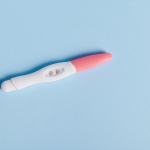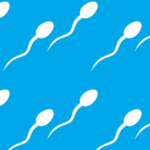What is testicular cancer and how common is it?
Testicular cancer is caused by abnormal development of cells in the testicles (also known as testes). Testicular cancer is diagnosed in around 1,000 Australians each year — that’s around one in every 13,000 Australian men.
Across men of all ages, testicular cancer is only the 19th most commonly diagnosed cancer but it is the most common type of cancer diagnosed in young adult Australian males (19-39 years), and is the fifth-greatest cause of cancer death in this group.
What causes testicular cancer?
We don’t fully understand why some people get testicular cancer and others don’t.
Testicular cancer is more common than normal in people with a family history of testicular cancer and in people who have hypospadias or undescended testes at birth. These links suggest that differences in how the testicles develop might be involved in causing testicular cancer.
How do you know if someone has testicular cancer?
The first sign of testicular cancer is usually a lump in the testicle, or enlargement or hardening of the testicle. People with testicular cancer tend to notice this themselves, before going to see a doctor. This is why it’s important for young men to do regular testicular self-examinations, so they can get familiar with how their testicles feel and notice any changes that occur (in much the same way that women perform breast examinations).
If testicular cancer spreads to other parts of the body it can eventually cause severe symptoms like weight loss, breathlessness or coughing up blood.
What does testicular cancer mean for someone’s health?
Testicular cancer has one of the highest cure rates of all cancers. Outcomes are best if the cancer is caught early, but even testicular cancer that has spread to other parts of the body can be cured in 9 out of 10 cases.
Testicular cancer is treated by surgical removal of the testicle with the tumour. The remaining testis produces enough sperm to allow fertility, and enough testosterone for normal body function. A prosthetic (artificial) testis can be fitted during surgery if someone is concerned about their appearance (there’s a variety to choose from).
Chemotherapy or radiotherapy may be needed if any cancerous cells have spread beyond the testis.
Most people who have testicular cancer go on to have normal lives.
What might someone with testicular cancer be feeling?
There are emotional and physical consequences of diagnosis and treatment of testicular cancer. Men diagnosed with testicular cancer may have feelings of nervousness, fear, stress, depression, anxiety, or anger. After treatment, they may have changes in how they feel about their bodies, their masculinity and their attractiveness, and some need help to adjust.
The impacts of testicular cancer treatment (e.g. anxiety, tiredness) pass with time, and many survivors report feeling in excellent health after recovery.
Sexual activity often decreases for a while after treatment, and some men experience problems with sexual function. However, these changes are usually temporary and sexual satisfaction is high.
Listen
Try asking open-ended questions like how have you been feeling lately? What are you most worried about right now? What would be most helpful at the moment?
Understand
It’s normal for someone going through testicular cancer might have strong feelings of anger, frustration or fear.
Support
Avoid offering unsolicited advice and only share your thoughts when they ask. Tell them you’re always they’re for them, don’t assume they know.

Real Story
Comedian Michael Shafar on testicular cancer and the importance of early diagnosis
Shafar shares his experience with the disease and the symptom he ignored for 12 months.
Read more
What effects can testicular cancer have on relationships?
Men in relationships seem to deal better with the emotional and physical consequences of testicular cancer, in part due to the support they receive. Some men feel as though their experience with testicular cancer makes them feel closer to their partner.
Testicular cancer can cause, or contribute to, relationship stress. Concerns about finances, employment, caring roles and planning may all come up.
What effect can testicular cancer have on partners?
Supporting someone with cancer can be challenging. Because testicular cancer is more common in young adult men, it often imposes a caregiving burden on their partners. As carers, young women are among those most affected by symptoms of distress. Young people may have their expectations about their relationship and other aspects of their lives upended by a partner’s diagnosis of cancer at an important stage of life.
Female partners of men who undergo cancer surgery can find it more distressing than the men themselves, but available information and support often does not match their needs. Loneliness is also common in women caring for partners with testicular cancer.
To help support a partner who has testicular cancer, look after yourself.













